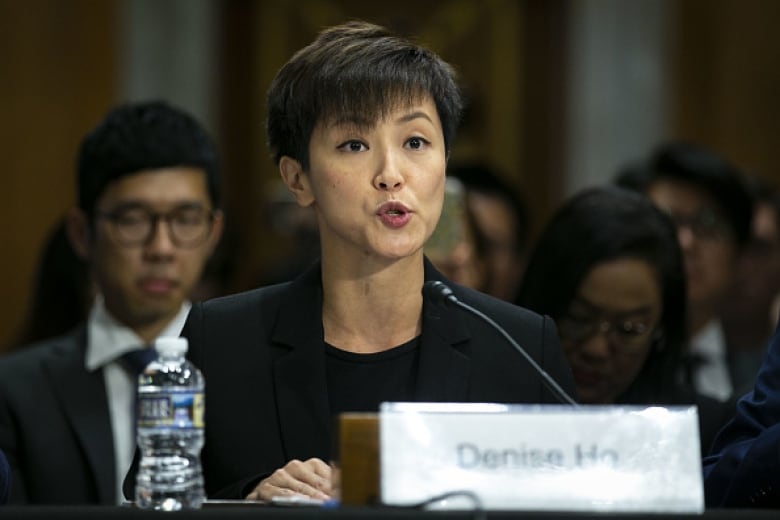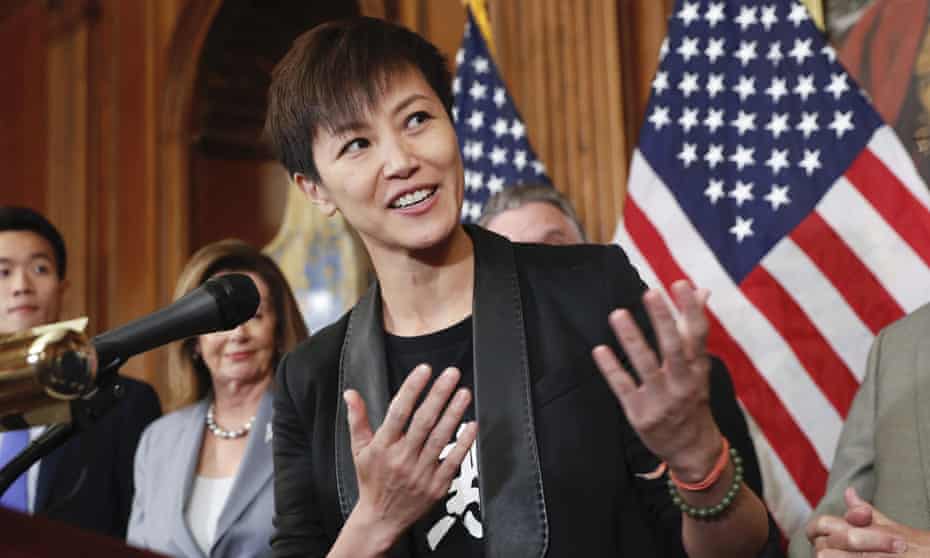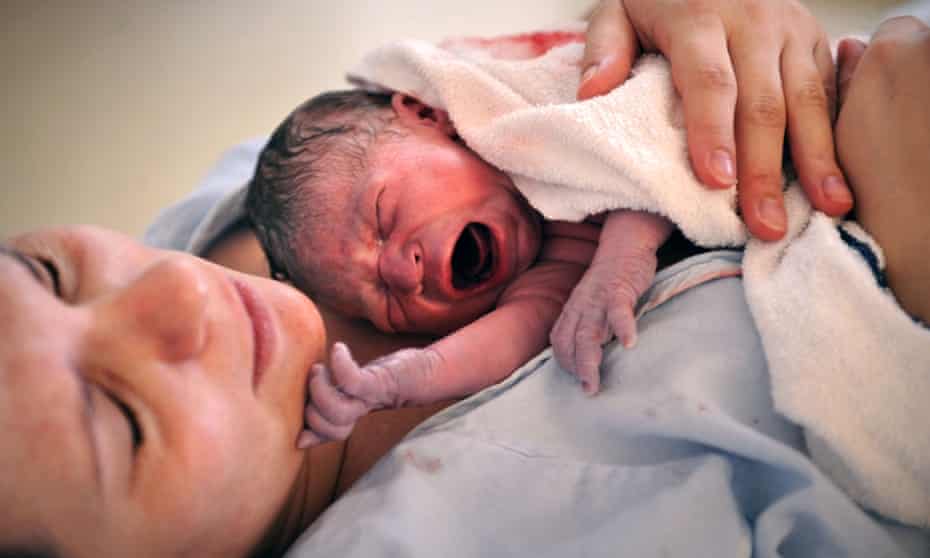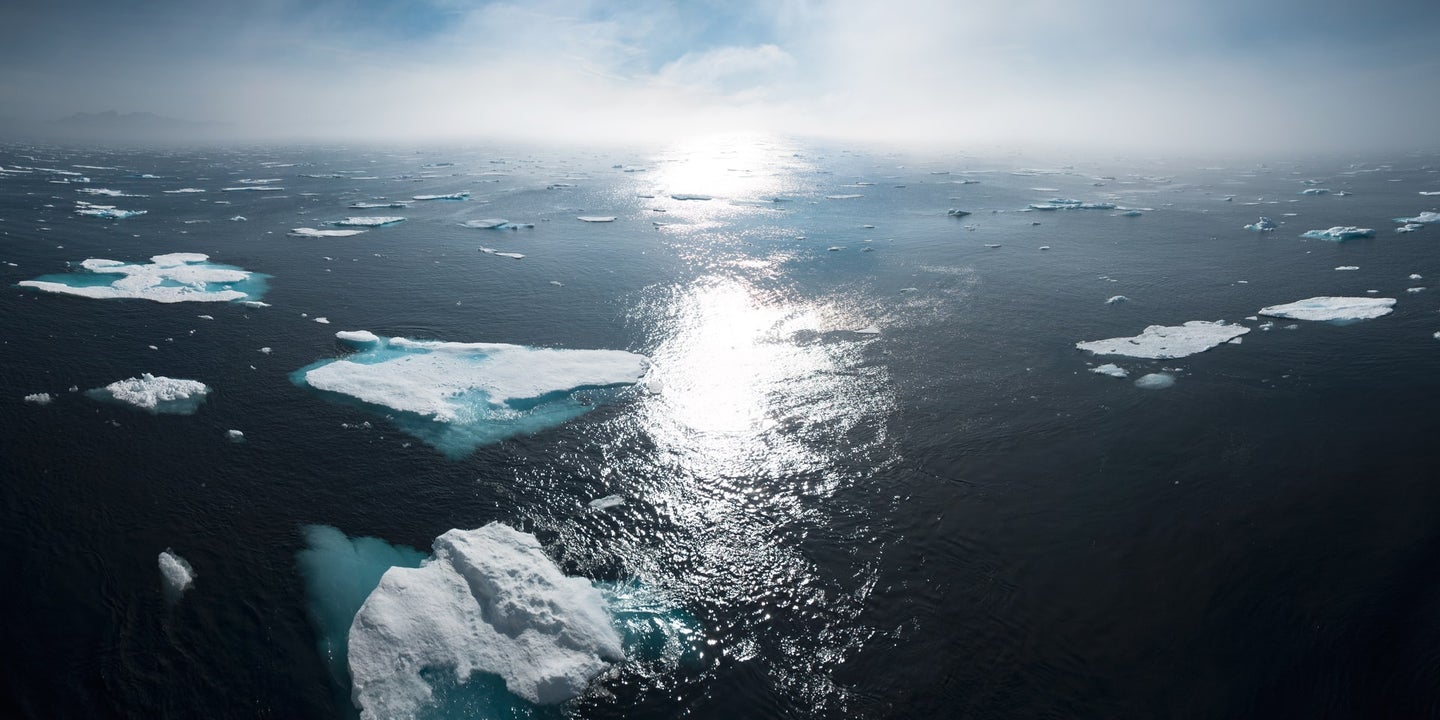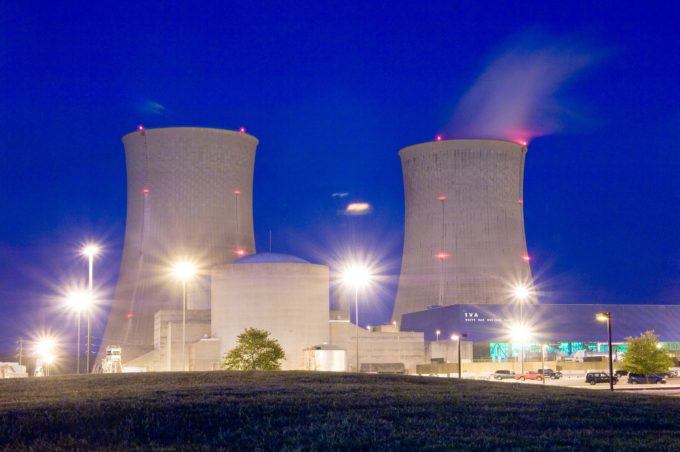Hong Kong news site closes amid national security raid, journalist arrests
By Gigi Lee and Cheng Yut Yiu
2021.12.29

AFP
Police in Hong Kong on Wednesday arrested seven people linked to a major pro-democracy news website for "sedition" under a national security crackdown ordered by Beijing, and froze its assets, prompting it to shut down on the same day.
Police arrested a former chief editor of Stand News, Chung Pui-kuen, and acting chief editor Patrick Lam, as well as former pro-democracy lawmaker Margaret Ng, Cantopop star Denise Ho, Chow Tat-chi and Christine Fang, all of whom have served on the board of directors.
In an operation involving more than 200 plainclothes and uniformed police, officers also searched the home of Hong Kong Journalists Association (HKJA) president Ronson Chan, who also worked as a senior editor at Stand News, although he wasn't arrested.
"Police arrested a number of senior and former senior officers of the company this morning, took a number of people in to help with enquiries, and seized a number of computers and some documents from the newsroom," Stand News said in a statement on Wednesday.
"Given the circumstances, Stand News is ceasing operations with immediate effect, with all online and social media content ... to be removed within the next few days," it said. "Acting editor in chief Lam has resigned and all staff will be laid off with immediate effect."
"Stand News has always been committed to protecting the core Hong Kong values of freedom and democracy, human rights, justice and the rule of law," it said. "Thank you to our readers for all of their support."

The HKJA expressed concern over the raid.
"The Hong Kong Journalists Association expresses its deep concern over police arrests at a prominent media organization and raids of its offices, the latest of several within the past year," it said.
"[We] call on the government to protect press freedom in accordance with the Basic Law," it said in a reference to the city's mini-constitution which enshrines Beijing's promises to preserve Hong Kong's traditional freedoms.
Police said all seven arrestees were being held for "conspiracy to publish seditious publication," a colonial-era charges under the city's Crimes Ordinance, while Stand News' assets were frozen under a draconian national security law imposed on the city by the ruling Chinese Communist Party (CCP) from July 1, 2020.
"A total of three men and four women, aged 34 to 73, were arrested in the operation so far," a police statement said. "Searches of their respective residences are under way."
Ronson Chan said police confiscated his computer, mobile, tablet, press pass and bank records during an early morning search of his home.
The raid on Stand News came after the website and its journalists were denounced by a number of CCP-backed news organizations and high-ranking Hong Kong officials.
Secretary for Security Chris Tang, a former police chief, had taken issue with its criticism of conditions at the Tai Tam Gorge Correctional Institution, as well as "inciting hatred of the police."
'Already tattered press freedom'
Margaret Ng and Denise Ho have been repeatedly targeted by pro-China media after they set up the "612 Humanitarian Relief Fund" to fund bail payments for people arrested in connection with the 2019 pro-democracy protests.
The fund announced its dissolution in November 2021 in spite of receiving high levels of public donations.
"Conspiracy to publish seditious publications" carries a maximum jail term of two years for the first conviction.
The New York-based Committee to Protect Journalists (CPJ) condemned the arrests, which it called "an open assault on Hong Kong's already tattered press freedom."
"Authorities must release the six and drop all charges against them immediately if Hong Kong is to retain any semblance of the freedoms that its residents enjoyed only a few years ago," CPJ Asia program coordinator Steven Butler said in a statement.
China remains the world’s worst jailer of journalists for the third year in a row, according to the CPJ.
It said 2021 marked the first time Hong Kong journalists were also imprisoned for doing their jobs, it said, in a reference to the arrests of founder Jimmy Lai and senior journalists at the now-shuttered pro-democracy newspaper, the Apple Daily.
Lai and colleagues are currently awaiting trial on charges of "collusion with a foreign power" under the national security law after the paper called for international sanctions on Hong Kong and Chinese officials.
Translated and edited by Luisetta Mudie.
Hong Kong: Police arrest reporters over 'seditious publications'
Pro-democracy outlet Stand News has announced it will stop operating after police arrested several of its current and former staff for "conspiracy to publish seditious publications."

Stand News editor Patrick Lam, second from left, is seen arrested by police officers
Police in Hong Kong arrested seven senior current and former staff members of online media organization Stand News on Wednesday.
The group was arrested for "conspiracy to publish seditious publications," the government said in a press release.
The official police statement did not identify those who were arrested but said they were three men and three women, aged 34 to 73.
News agency AFP reported that Stand News acting editor-in-chief Patrick Lam was being led away in handcuffs.
Former editor-in-chief Chung Pui-kuen and four board members who resigned in June were among those arrested, according to local media.
Later Wednesday, Stand News announced its closure.
Police raid office, houses
The national security police were seen hauling boxes from the Stand New office around lunchtime Wednesday, AFP reported.
Hong Kong police said in a press release that they had conducted a search against an "online media company," deploying over "200 uniformed and plainclothes police officers."
DW correspondent Phoebe Kong told DW that the more than 200 officers deployed to search the office of Stand News confiscated materials and documents.
She also said officers of the Hong Kong police's national security department searched the home of Hong Kong Journalists Association chairman Ronson Chan.
Chan, who is also a deputy editor at Stand News, said that police confiscated his computer, mobile telephone, tablet device, press pass, and bank records during the early morning raid.
He was taken away for questioning but was later released, his organization said.
"Stand News has always conducted professional news reporting, this is beyond doubt," Chan told reporters. "Criminal charges won't change this fact."
Police said in a statement that they were conducting a search with a warrant authorizing them "to search and seize relevant journalistic materials."
Stand News posted a video on Facebook of police officers saying they had a warrant to investigate the "conspiracy to publish a publication of seditious publications."
Police were also searching the homes of Chan's colleagues from Stand News, according to Kong.
A 'dangerous precedent'
Eric Lai, Hong Kong law fellow at Georgetown University's Center for Asian Law, told DW that the arrests were a "dangerous precedent" as the government can arrest people "retroactively."
"The charge of seditious publication was also used to charge the unionists who published the children's book a few months ago," Lai said, referring to five people being detained in July for publishing a book called "Defenders of the Sheep Village."
"It was quite disturbing because seditious law in Hong Kong is a kind of speech crime that the government can use whenever it needs once they interpret any expression or publications that are anti-government."
Lai warned that charges of seditious publication would have an "unprecedented" and "chilling effect" throughout the city.
"It would force the newspapers in Hong Kong to decide if they still want to act independently and critically of the government," he added.
The Committee to Protect Journalists (CPJ) described the raid as "an open assault on Hong Kong's already tattered press freedom" and called for charges to be dropped.
A crackdown on dissent
This is not the first time Hong Kong police have conducted raids on journalists.
In June, hundreds of police raided the premises of the pro-democracy newspaper Apple Daily. The paper's executives were arrested for "collusion with a foreign country."
Hong Kong prosecutors filed an additional "seditious publications" charge against Apple Daily founder Jimmy Lai on Tuesday.
Hong Kong passed a controversial national security law in June of last year.
Earlier this month, Hong Kong held a "patriots-only" legislative election, which critics said marginalized pro-democracy candidates.
DW's William Yang in Taipei contributed to this report.
mvb, sdi/dj (AFP, AP, dpa, Reuters)
Hong Kong police arrest 6 journalists
amid crackdown on dissent under
national security law
Raid raises concerns about media freedom under law
imposed by Beijing in 2020
Hundreds of Hong Kong national security police raided the office of online pro-democracy media outlet Stand News on Wednesday and arrested six people, including senior staff, for "conspiracy to publish seditious publications."
The raid further raises concerns about freedom of speech and that of the media in the former British colony, which returned to Chinese rule in 1997 with the promise that a wide range of individual rights would be protected.
Police said in a statement that they had a warrant authorizing officers "to search and seize relevant journalistic materials."
"Over 200 uniformed and plainclothes police officers have been deployed during the operation. The search operation is underway," the statement said.
Sedition is not a crime under the sweeping national security law imposed by Beijing on the city in June 2020.
But recent court judgments have freed authorities to use powers conferred by the new legislation to deploy previous sparsely used colonial-era laws, including the Crime Ordinance that covers sedition.
June raid led newspaper to shut down
Authorities say the national security law has restored order after often-violent pro-democracy unrest in 2019 and that it does not curb rights and freedoms. But critics say the legislation is a tool to quash dissent.
In June, hundreds of police officers raided the premises of the pro-democracy newspaper Apple Daily, arresting executives for alleged "collusion with a foreign country." The newspaper subsequently shut down.
Hong Kong broadcaster TVB said the six people arrested on Wednesday included former board members Margaret Ng, a former democratic legislator and pop singer Denise Ho, a Canadian raised in Montreal. Acting chief editor Patrick Lam was also arrested.
Stand News posted a video of police arriving at the residence of Ronson Chan, its deputy assignment editor, who is also head of the Hong Kong Journalists Association.
"The charge was conspiracy to publish seditious publications. This is the court warrant and this is my warrant card. Your phone is obstructing our work," an officer is seen saying.
Police said in a separate statement that they had arrested three men and three women, aged 34 to 73, and that searches of their homes were underway. It did not name those arrested, in line with its usual practice.
The Stand News bureau, in an industrial building in the Kwun Tong working-class district, was partially sealed off by dozens of police, according to a Reuters reporter at the scene.
A police media liaison officer on the 14th floor said entry to the office would not be permitted given an "ongoing operation." He declined to give further details.
Four police vans were parked downstairs as dozens of officers milled around the lobby.
Stand News earlier this year said it would suspend subscriptions and remove most opinion pieces and columns from its website due to the national security law. Six board members had also resigned from the company.
Benedict Rogers, co-founder and CEO of the non-governmental organization Hong Kong Watch, said the arrests are "nothing short of an all-out assault on the freedom of the press in Hong Kong."
"When a free press guaranteed by Hong Kong's Basic Law is labelled 'seditious,' it is a symbol of the speed at which this once great, open, international city has descended into little more than a police state," he said.
The arrests come as authorities crack down on dissent in the semi-autonomous Chinese city. Police charged former newspaper publisher Jimmy Lai with sedition on Tuesday. His Apple Daily newspaper shut down after its assets were frozen. He was already facing charges under the national security law.
Police have not disclosed which Apple Daily or Stand News articles they considered seditious.
The arrests also follow the removal of sculptures and other artwork from university campuses last week. The works supported democracy and memorialized the victims of China's crackdown on democracy protesters at Beijing's Tiananmen Square in 1989.
With files from The Associated Press


